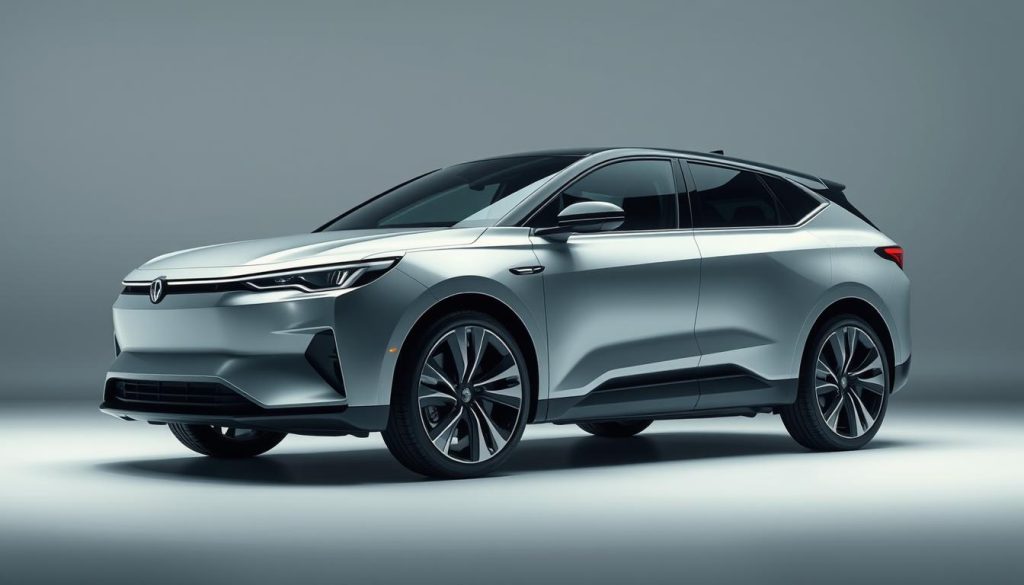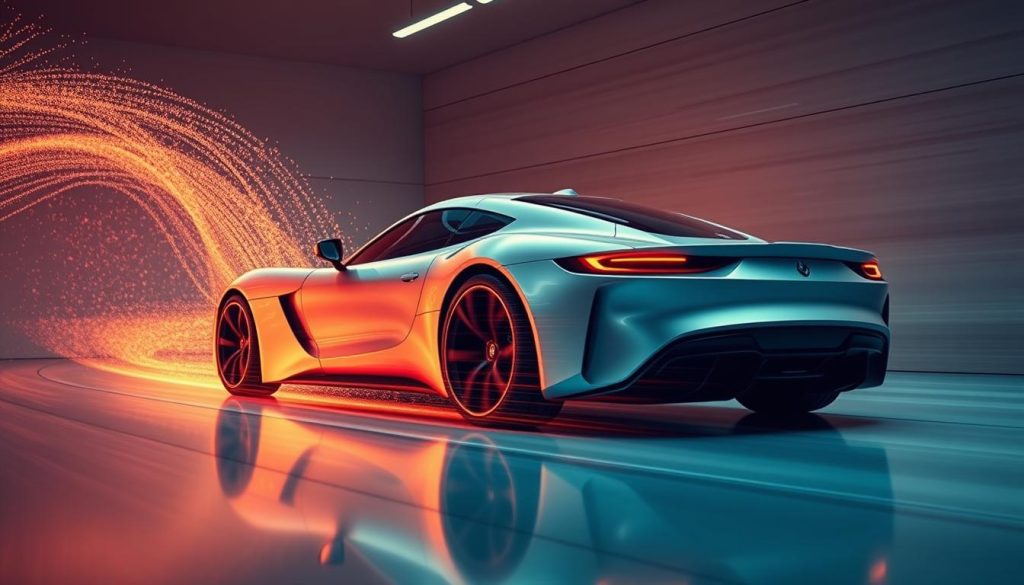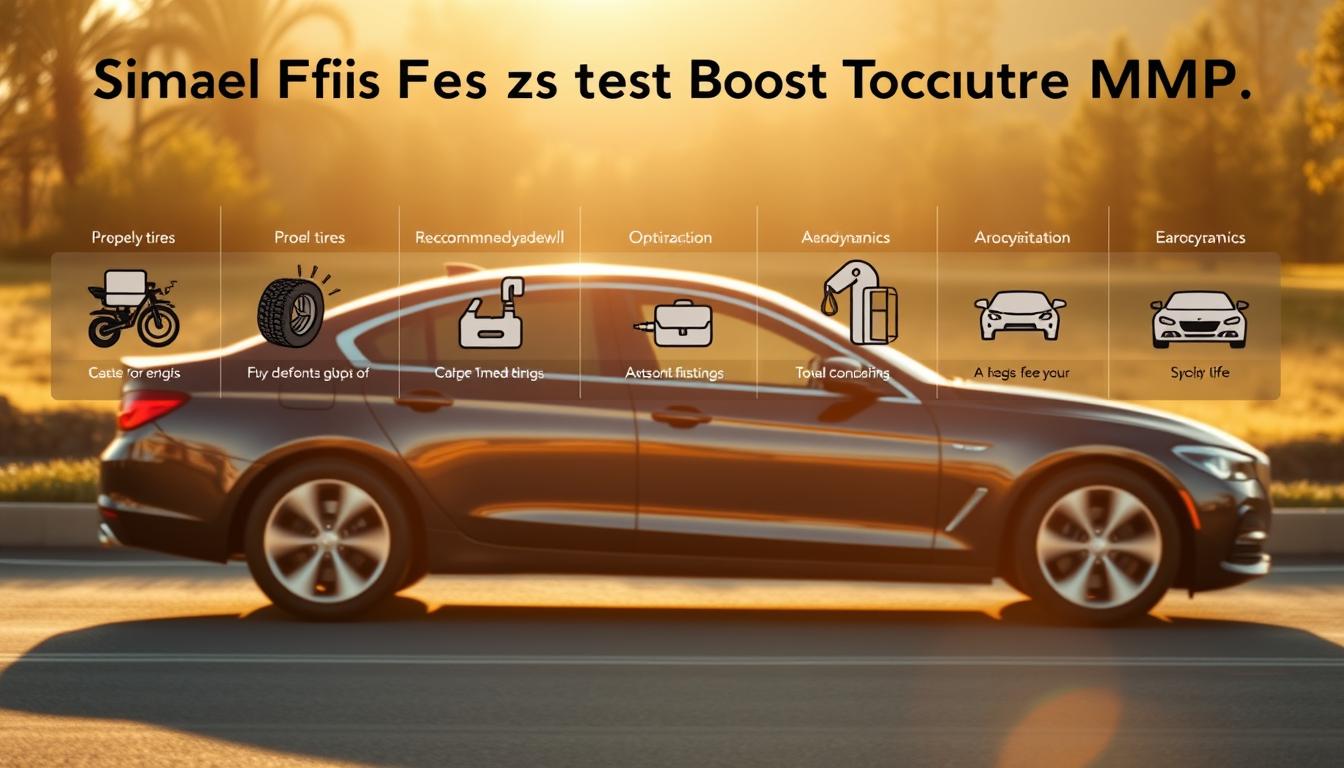With gas prices on the rise, drivers are looking for ways to save money while keeping their vehicles running smoothly. At Heaven Automotive, we’ve helped thousands of drivers unlock better mileage through practical adjustments that take minutes to implement. The best part? These strategies don’t require expensive upgrades or drastic lifestyle changes.
Did you know small tweaks to your driving habits and maintenance routine could slash your annual gas costs by hundreds of dollars? Studies show consistent fuel-efficient practices reduce consumption by up to 25% while lowering harmful emissions. Our team combines government research, consumer reports, and hands-on experience to bring you methods that actually work.
Beyond the financial benefits, optimizing your vehicle’s efficiency improves safety and reduces wear on critical components. We’ll show you how combining smarter acceleration patterns, tire care, and strategic trip planning creates compounding savings over time. Whether you drive a compact car or an SUV, these solutions adapt to your daily routine.
Key Takeaways
- Practical driving adjustments can save hundreds annually on gas expenses
- Proper maintenance reduces emissions by up to 25% in most vehicles
- Efficient habits prevent premature wear on engine and braking systems
- Combining smart driving with routine care delivers maximum results
- Heaven Automotive’s methods are backed by DOT data and real-world testing
Practical Ways to Improve Your Fuel Economy
Small changes to how you manage your car’s weight and tires can create big savings over time. At Heaven Automotive, we’ve seen firsthand how these adjustments help drivers spend less money at the pump while extending their vehicle’s lifespan.

Lighten Up for Better Performance
Extra weight forces your engine to work harder. For every 100 pounds of cargo, efficiency drops by 1% – that’s like paying an extra $0.04 per gallon. Our technicians often find forgotten items like gym bags, tools, or seasonal gear adding unnecessary strain.
Try this: Clear out your trunk and back seats monthly. Even small loads matter – 25 kilograms (55 pounds) in a midsize car reduces efficiency by another 1%. Keep only what you truly need for daily drives.
Smart Tire Care Saves Resources
Properly inflated tires roll smoother and last longer. Under-inflated tires by just 8 PSI increase fuel use by 4% and wear out 6,200 miles faster. Check pressure monthly since tires naturally lose 1 PSI each month.
We help drivers find their vehicle’s ideal pressure using the doorjamb sticker specs. Misaligned tires are stealthy efficiency killers too – they can reduce mileage by 10% while causing uneven tread wear. Our free tire health checks catch these issues early.
Fuel Economy Tips for Efficient Driving
How you handle the pedal impacts your gas costs more than you might think. At Heaven Automotive, we help drivers refine their technique using methods proven in both lab tests and real-world conditions. These strategies work with any vehicle and require no special equipment.
The Art of Gentle Acceleration
Imagine balancing a full coffee cup on your dashboard – that’s how smoothly you should press the gas. Taking 5 seconds to reach 12 mph (20 km/h) from a stop prevents fuel waste caused by rapid starts. Our tests show aggressive launches can drain 40% more gas during city driving.
Consistency Is Key
Your vehicle loves predictability. Fluctuating between 47-53 mph (75-85 km/h) every 18 seconds adds 20% to your fuel use. We recommend using cruise control on highways – it maintains speed better than human reflexes. Most vehicles hit peak efficiency between 31-50 mph (50-80 km/h).
Reading the Road Ahead
Smart drivers look 12-15 seconds down the road. By anticipating stoplights or slowing traffic, you can ease off the gas early instead of braking hard. This approach saved our clients 2-3 mpg in real-world trials. Maintaining a 4-second following distance gives you room to adjust smoothly.
- Cruise control cuts highway fuel use by 7-14% in EPA testing
- Dropping from 65 mph to 55 mph adds 6-8 extra miles per gallon
- Each hard brake wastes the energy needed to accelerate back to speed
Smart Driving Habits and Vehicle Optimizations
Your vehicle’s shape plays a bigger role in efficiency than most drivers realize. At highway speeds, over half your engine power works just to push through air resistance. Our team at Heaven Automotive has tested how streamlining your ride can lead to surprising savings.

Roof Racks: The Hidden Efficiency Killer
Those unused bike carriers or cargo boxes cost more than storage space. In real-world tests, a Nissan Altima with two roof-mounted bikes lost 13 mpg – plummeting from 46 to 33. Even empty racks create drag, stealing 2-5 mpg depending on your vehicle’s design.
Sedans suffer more than SUVs here. A sleek Altima loses 5 mpg with empty racks, while a boxier RAV4 drops just 2 mpg. Hitch-mounted cargo carriers typically cause 30% less drag than roof options. We help drivers choose racks that balance utility and efficiency.
Air conditioning presents another trade-off. While it can boost fuel use by 20%, we recommend using it strategically – recirculate cabin air on hot days to reduce workload. For short stops under 60 seconds, idling burns less fuel than restarting your engine.
- Remove roof racks immediately after trips
- Use sunshades to minimize AC use in parked vehicles
- Switch to hitch-mounted carriers for frequent hauling
- Combine errands to avoid multiple cold starts
Our specialists analyze your driving patterns to create custom optimization plans. From aerodynamic tweaks to accessory recommendations, we make efficiency upgrades simple and effective.
Conclusion
Putting these strategies into practice creates a powerful ripple effect. Our clients regularly see 15-25% reductions in gas costs while cutting emissions – all without sacrificing performance. The real magic happens when maintenance meets smart driving habits.
Combining proper tire care with smoother acceleration patterns helps your vehicle work smarter. Choosing Top Tier gas from trusted stations like Shell or Costco keeps engines cleaner. This simple switch alone can improve mileage by 2-3% based on AAA studies.
Every small adjustment adds up. Removing roof racks between trips and planning errand routes cuts unnecessary miles. Many drivers extend time between fill-ups by 4-7 days using these methods.
Ready to maximize fuel savings? Our Heaven Automotive experts tailor solutions for your specific car and commute. We’ll optimize everything from air filter efficiency to cruise control settings – schedule your consultation today and start saving.
FAQ
How does extra weight affect my car’s mileage?
Why is tire pressure important for saving gas?
Does rapid acceleration waste gas?
How does cruise control improve efficiency?
Can roof racks really impact mileage?
What’s the best speed for maximizing gas savings?
FAQ
How does extra weight affect my car’s mileage?
Carrying unnecessary items in your trunk or cabin forces the engine to work harder, burning more gas. We recommend removing heavy items like sports gear or tools when they’re not needed for your trip.
Why is tire pressure important for saving gas?
Underinflated tires create more rolling resistance, which means your vehicle uses more energy to move. Check your tire pressure monthly using a reliable gauge—properly inflated tires can improve efficiency by up to 3%.
Does rapid acceleration waste gas?
Yes! Jackrabbit starts and hard braking can increase fuel use by 15–30% at highway speeds. Gentle acceleration and coasting to decelerate help your car operate more efficiently, especially in stop-and-go traffic.
How does cruise control improve efficiency?
Maintaining a steady speed on highways reduces constant acceleration and braking, which drains your tank faster. Cruise control helps minimize these fluctuations, making long drives smoother and more fuel-friendly.
Can roof racks really impact mileage?
Absolutely. Roof racks and cargo boxes increase aerodynamic drag, forcing your engine to compensate. Remove them when not in use—you could save up to 10% on highways, according to studies by AAA.
What’s the best speed for maximizing gas savings?
Most vehicles hit peak efficiency between 50–60 mph. Driving faster increases wind resistance exponentially—every 5 mph over 60 can cost an extra
FAQ
How does extra weight affect my car’s mileage?
Carrying unnecessary items in your trunk or cabin forces the engine to work harder, burning more gas. We recommend removing heavy items like sports gear or tools when they’re not needed for your trip.
Why is tire pressure important for saving gas?
Underinflated tires create more rolling resistance, which means your vehicle uses more energy to move. Check your tire pressure monthly using a reliable gauge—properly inflated tires can improve efficiency by up to 3%.
Does rapid acceleration waste gas?
Yes! Jackrabbit starts and hard braking can increase fuel use by 15–30% at highway speeds. Gentle acceleration and coasting to decelerate help your car operate more efficiently, especially in stop-and-go traffic.
How does cruise control improve efficiency?
Maintaining a steady speed on highways reduces constant acceleration and braking, which drains your tank faster. Cruise control helps minimize these fluctuations, making long drives smoother and more fuel-friendly.
Can roof racks really impact mileage?
Absolutely. Roof racks and cargo boxes increase aerodynamic drag, forcing your engine to compensate. Remove them when not in use—you could save up to 10% on highways, according to studies by AAA.
What’s the best speed for maximizing gas savings?
Most vehicles hit peak efficiency between 50–60 mph. Driving faster increases wind resistance exponentially—every 5 mph over 60 can cost an extra $0.20 per gallon, based on data from fueleconomy.gov.
Does idling waste gas?
Idling for more than 10 seconds uses more fuel than restarting your engine. Turn off your car during prolonged waits—like school pickups or drive-thrus—to cut unnecessary fuel burn.
.20 per gallon, based on data from fueleconomy.gov.
Does idling waste gas?
Idling for more than 10 seconds uses more fuel than restarting your engine. Turn off your car during prolonged waits—like school pickups or drive-thrus—to cut unnecessary fuel burn.

